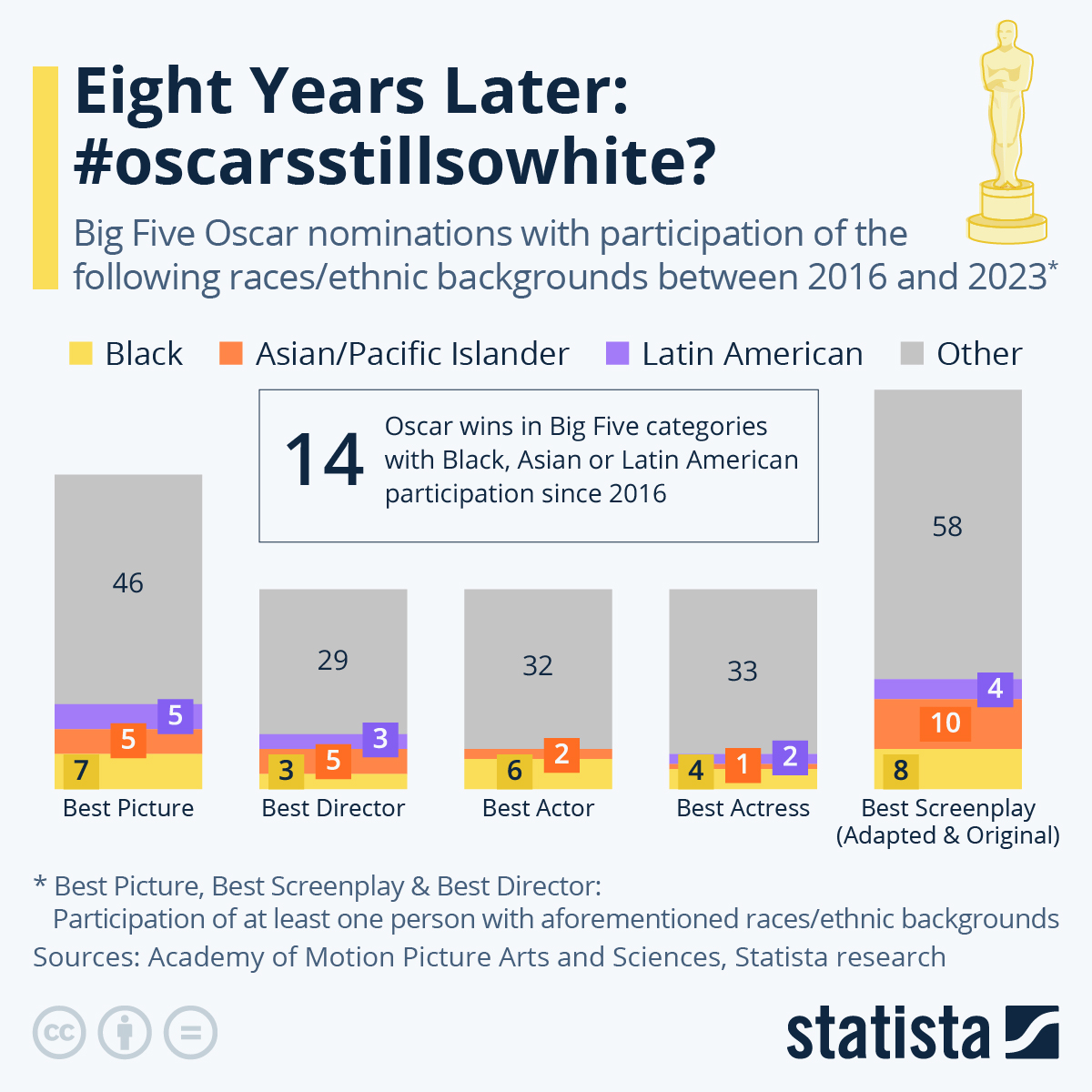Will Smith took home the Oscar for Best Actor at the Academy Awards ceremony, held in Los Angeles last night, for his role as the father and coach of Serena and Venus Williams in the sports drama King Richard. The 53-year-old’s win marks the first time an African-American actor prevailed in the category since 2006 when Forest Whitaker was awarded for “The Last King of Scotland”.
Smith’s nomination was a rare one for non-white Hollywood professionals at this year’s Oscars. Out of the 35 nominations in the Big Five categories for the 94th Academy Awards, only eight included participants who are Black, from Asian or from Latin American backgrounds. The Big Five, generally seen as the most prestigious categories at the Oscars, are comprised of Best Picture, Best Director, Best Actor, Best Actress, and Best Screenplay, both adapted and original. As our chart based on Statista research shows, 2022 nominations are largely in line with the average share of minority nominees between 2016 and 2022.
The issue appears to be most prevalent in the award category Best Actress, where only six women who are Black or from Latin American backgrounds were nominated between 2016 and 2021 and none of them won. Concerning Best Director and Best Picture, 2019 saw a landmark victory for South Korean director Bong Joon-Ho, who won both awards for his black comedy thriller Parasite. Joon-Ho and his co-writer Han Jin-Won were the first people of Asian descent ever to win screenwriting and Best Picture awards at the Oscars. A Latin American mainstay in terms of Academy Award nominations is Guillermo del Toro, who was nominated for three awards since 2015 and was up for another in the Best Picture category with Nightmare Alley this year. The award went to coming-of-age drama CODA instead.
The fact that this share of nominees doesn’t reflect the demographics of the United States and serves to underline the minority status of non-white voices in the movie industry led to the #oscarssowhite movement in 2015, which gained increased traction in 2016 after the Academy allegedly failed to address the concerns voiced by proponents of this movement. The issue that the movie industry doesn’t reflect general society has also been backed by research. For example, according to a study by the University of California, 26 percent of movie writers and 25 percent of movie directors had a minority background in 2020, while the group of people with singular Hispanic, Latin American, Black or African American backgrounds alone comprised 31 percent of the U.S. population in the same year.
One group that’s particularly absent and isn’t talked about at length are actors, directors and writers with a distinctly Arabian background. In 2021, for example, only two films by Arabian filmmakers were nominated, Tunisian director Kaouther Ben Hania’s The Man Who Sold His Skin and The Present by Palestinian filmmaker Farah Nabulsi.
You will find more infographics at Statista
also read
Russian spokesperson: Unfriendly countries will pay in Rubles for gas supply
Ask me anything
Explore related questions






